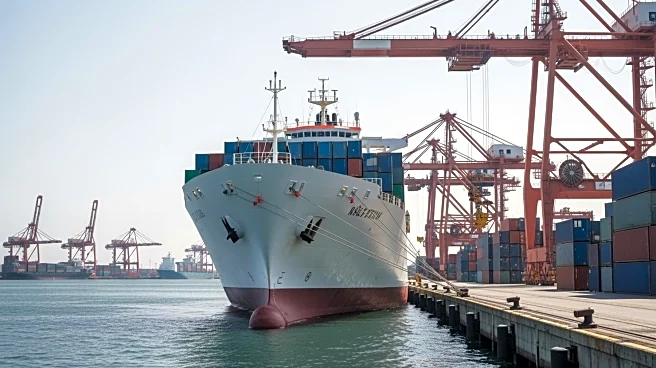What's Happening?
Gwadar Port, located in Balochistan, Pakistan, has emerged as a strategic hub within the China-Pakistan Economic Corridor (CPEC). Originally a small fishing village, Gwadar has transformed into a key player
in global trade, connecting Pakistan to major trade routes. The port's deep-sea capabilities allow it to accommodate large cargo ships, offering a new advantage over Karachi. The development of the Gwadar Free Zone has attracted international investors, positioning Gwadar as a new trade center akin to Dubai. The port's growth is also fostering economic development in Balochistan, providing employment opportunities and improving infrastructure such as roads, power plants, and telecommunications.
Why It's Important?
Gwadar Port's development is crucial for Pakistan's economic and strategic positioning. It provides a shorter and safer route for China's oil and goods, reducing reliance on the Strait of Malacca and saving billions annually. For Pakistan, the port offers transit revenue, job creation, and stronger economic ties with China, the world's second-largest economy. The port's expansion is expected to stabilize regional economies by diversifying trade routes and fostering cooperation. Additionally, Gwadar's growth is improving local living conditions, bridging the gap between urban and rural areas, and enhancing access to essential services like education and clean water.
What's Next?
The ongoing development of Gwadar Port includes the construction of a modern international airport, which will enhance connectivity with major cities in Asia and the Middle East. This will boost trade and tourism, further integrating Gwadar into global markets. Desalination plants are also being developed to address water scarcity, ensuring a stable supply of clean water for residents and industries. As infrastructure and regulations improve, Gwadar is poised to attract more local and foreign investment, solidifying its role as a key trade and industrial hub in the region.









